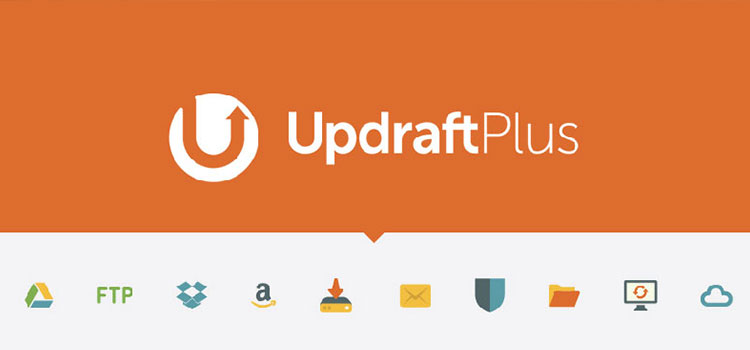1. WordPress SEO by Yoast
Site optimisation plugin
We kick off this article with one the best WordPress plugins. This is a really useful plugin for helping you to optimise your website for search engines. Once installed you can its inbuilt site wizard to help set your site up. This will guide you through naming your WordPress site and help with other basic setup features.
One of the most useful things with the Yoast SEO plugin is that it automatically sets up an XML Sitemap. A Sitemap is an XML file that lists the URLs for a site and it allows Google to crawl your website’s structure correctly.
Now for the good bit. On every content page and post, you will now see an SEO panel which outlines the structure of your page. Both the good and the bad. The useful traffic light system is easy to follow – RED (needs fixing), ORANGE (could do with improvement) and GREEN (all OK).
The page analysis covers things like page title, keywords, links, images and meta information. You can also view snippet previews, which is basically the title and subtext for that page that a search engine will publicly display in search results. You’ll need to fill this in manually as the autofill feature is used only as a backup, and it’s not that accurate.
There is also a tab that displays the readability of the page. It provides information and advice on the structure of your page content. Yoast also provide a premium WordPress plugin version which adds various functionality. The website is also a great resource if you want to know more about SEO.
2. Google Analyticator by SumoMe
Google Analytics plugin
SumoMe are more well known for producing WordPress plugins for social media and email sign-ups. But Google Analyticator is less unique and one that I’ve only recently started using.
If you don’t have the time to scan over your more extensive Google Analytics account, then this is for you. It provides a handy snapshot of visits, page views, bounce rate, average time on your site and the percentage of new visits. You can also set the data to display the last 30-60 days results.
3. SumoMe
Social media and email sign-up plugin
I’ve already mentioned SumoMe above. Their main website plugin focuses on helping you gain more customers, more traffic and provides the ability to track site metrics. Most of the features are free, which is a great bonus. They also offer a premium paid version that provides even more functionality.
I currently don’t use most of the features but I have helped some of my clients setup social media share bars, email signup boxes and site visitor tracking. So if you are interested in building a following and encouraging visitors to signup to your newsletter, then give this a try.
4. UpdraftPlus
WordPress site backup plugin
If you haven’t thought about a backup plan for your site yet, do it now! There are numerous plugins available for site backup, but this is one of the better ones. Once you’ve installed the UpdraftPlus plugin you can select where you store your backups to: Dropbox, FTP, Google Drive, Amazon S3 etc. Setup how often you want to backup and how many copies to store – that’s it.
On the occasion when your site unfortunately gets hacked or disappears, you can simply upload a previous backup set and you should be good to go.
It also has a great feature where you can migrate a site from one server to another. This is especially useful for WordPress designers who want to transfer a development site to a live client server. You’ll need to purchase the premium WordPress plugin version for this feature though.
5. W3 Total Cache
SEO and site performance plugin
To really make the most of your WordPress experience it’s a good idea to instal a plugin that sorts your site performance out. W3 Total Cache is designed to set most things automatically but there some more advanced features if you know what you a re doing.
Essentially the plugin makes improvements to your page rankings, especially the mobile-friendly version of your site. It increases site performance and speed by a factor of ten. And it stores versions of your pages for repeat viewing (called caching) so visitors don’t have to wait so long to read your content. What’s not to like?
6. WP Smush by WPMU Dev
Image compression plugin
If you have a WordPress site that contains lots of images, then managing the size of your files is paramount. The WP Smush WordPress plugin allows you to compress the size of your images across the board. That means it creates numerous images versions to fit mobile, tablet and desktop platforms. So you’ll always have the optimum size available to help keep your website running smoothly.
With the free account you get to compress up to 50 images at a time. In order to continue with the next batch you have to log out and log back in again. Of course if this is too much of a pain, just upgrade to the premium WordPress plugin.
7. WP Broken Link Status Checker by Pau Iglesias
Broken link checker plugin
With the WP Broken Link Checker you can scan your site for (you guessed it) broken file links. It provides a comprehensive list of all your pages including: redirects, no follows and broken links. You then simply work through the list and fix away.
8. Redirection by John Godley
Link redirection plugin
At some point you’ll change page urls or move pages within your site structure. This can cause a 404 error. A 404 or Not Found error message is a Hypertext Transfer Protocol (HTTP) standard response code, in computer network communications, to indicate that the client was able to communicate with a given server, but the server could not find what was requested. Basically the search engine couldn’t find that page.
They are not horrendous but they do need attention. Redirection for WordPress automatically redirects all 404 errors to any page using a 301 redirect for SEO. You simply locate the bad url via Google Webmaster Tools and within Redirect, insert the new url where you want visitors to go.
9. Spam Protection by CleanTalk
Controls unwanted spam attacks
Most websites will contain a contact message box and clickable email address. So to keep those pesky spam sprits from attacking you night and day, you’ll need a Spam Protection plugin. I’ve been using the premium version of this plugin for while now. One of the cool features is that it emails me a report once a week to let me know how many attacks I have survived. But more importantly it lets me know its working – so it’s definitely in my top ten for best WordPress plugins.
There is a free version of this WordPress plugin available as well as the premium paid version.
10. Disqus Comment System
Blog community plugin
Got a blog, then maybe you need to try the Disqus blog plugin. Pronounced “discuss”, Disqus is a service and tool for web comments and discussions. Disqus makes commenting easier and more interactive, while connecting websites and commenters across a thriving discussion community.
You’ll need to create an account and API, but once done you’ll connect with other members on the system. It’s a good way to increase your reach and make new connections. It also keeps spammers away which is a bonus.














